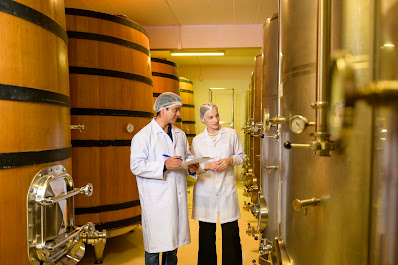Juicing the Natural Way: Enzymes in Fruit Juice Processing
Fruit juice extraction may appear straightforward, but achieving clarity, consistency, and high yield from raw fruit is a complex science. Enzymes have become vital tools in modern juice processing, enabling producers to enhance both the quality and efficiency of their products—naturally and economically.
One of the most widely used enzymes in juice processing is pectinase, which breaks down pectin, a structural polysaccharide found in plant cell walls. Pectin creates viscosity and cloudiness in fruit juice. By hydrolysing pectin, enzymes enable the release of more juice, improve filtration speed, and result in a clearer, brighter product. This is particularly beneficial in apple, grape, and citrus juices.
Cellulase and hemicellulase are also commonly used to break down cellulose and hemicellulose, further dismantling plant cell walls. This boosts juice yield and enhances the extraction of valuable nutrients and colour compounds, leading to a product with richer flavour, higher nutritional value, and improved appearance.
Enzymes also support cold processing, which preserves flavour and aroma compounds that might otherwise be lost during high-heat treatments. This not only improves taste but also reduces energy consumption, making the entire operation more environmentally sustainable.
In addition to improving yield and quality, enzymes contribute to process consistency. Their use reduces variability caused by seasonal or varietal differences in fruit, helping maintain a standard taste and texture year-round. This is crucial for commercial juice brands where consistency and shelf appeal are key.
From a production perspective, enzymes offer a cost-effective solution. They require minimal inputs, work efficiently under mild conditions, and often eliminate the need for mechanical or chemical interventions. This means less wear and tear on equipment, fewer additives, and cleaner labelling.
As consumers continue to demand clean-label, naturally processed beverages, the role of enzymes in juice processing has become even more critical. They represent the ideal marriage of science and nature, allowing producers to meet high standards of quality, sustainability, and efficiency—all while letting the fruit speak for itself.
Source - https://www.biolaxienzymes.com/the-role-of-enzymes-in-fruit-juice-extraction-and-processing/




Comments
Post a Comment